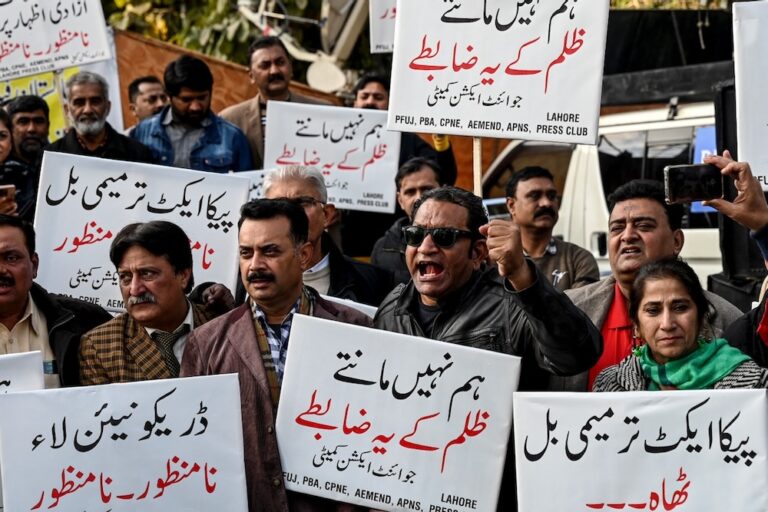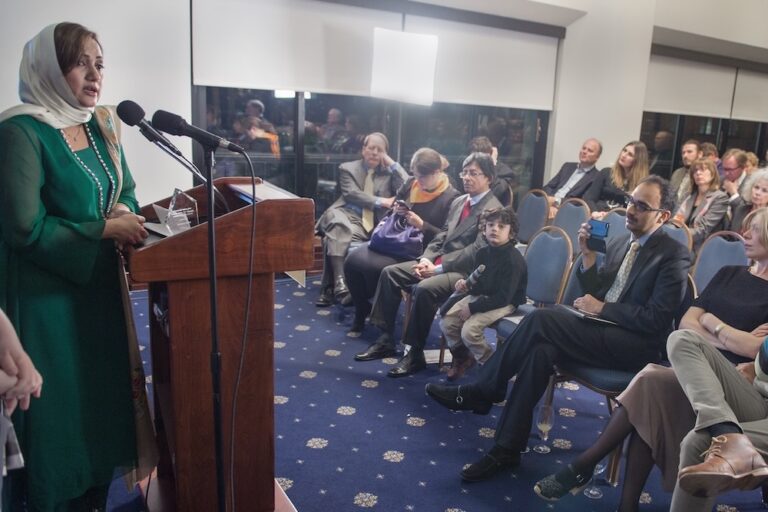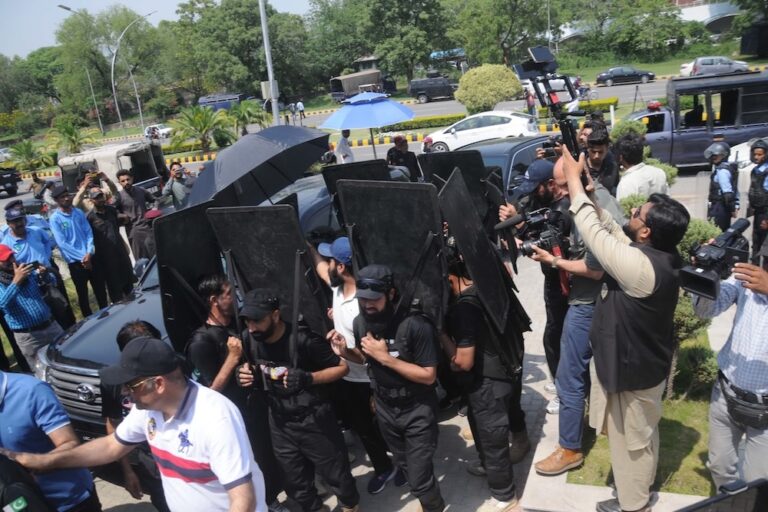(PPF/IFEX) – Muzaffar Ejaz, editor of the Karachi-based Urdu-language daily “Jasarat”, was picked up by intelligence agency officers as he left his office on 25 July 2002, at approximately 11:00 p.m. (local time). He was interrogated and released at 4:00 a.m. the following morning. According to press reports, the editorâs abduction was the culmination of […]
(PPF/IFEX) – Muzaffar Ejaz, editor of the Karachi-based Urdu-language daily “Jasarat”, was picked up by intelligence agency officers as he left his office on 25 July 2002, at approximately 11:00 p.m. (local time). He was interrogated and released at 4:00 a.m. the following morning.
According to press reports, the editorâs abduction was the culmination of a week of harassment that followed the publication of a controversial story in his newspaper. Ejaz complained of threats to his life and harassment by the Inter-Services Intelligence (ISI) and other agencies in their bid to intimidate him.
Prior to his abduction, the editor had written a letter to the president of the All Pakistan Newspapers Society (APNS), stating that on 16 July he had received a phone call at his office from a person who identified himself as Colonel Amjad of the ISI, requesting a meeting with him. On 17 July, Ejaz met with another ISI officer, Colonel Zaki. The officer wanted to discuss a story published in his newspaper which reported that ISI Colonel Ehtesham Zamir had been relieved of the responsibility of uniting the various Muslim League factions.
Colonel Zaki wanted to know the name of the reporter, the source of the news and the objectives of those who had provided the news. Ejaz offered to publish a retraction, but this was unacceptable to Colonel Zaki. When the editor refused to provide the desired information, Colonel Zaki warned him that he knew of “many other ways to find out.” He advised Ejaz to return to his office and provide him with the requested information after consulting with his colleagues.
As soon as the editor reached his office, he received a phone call from an unidentified person who wanted to know if he had reached the office “safely,” and was again asked for the reporterâs name. Ejaz told the anonymous caller that he had consulted his editor-in-chief, who had advised him not to yield to the demand. The caller got angry and insisted that he be given the name of the reporter by the next day. The newspaper also received a refutation of the offending story from the official Press Information Department, which was published in the newspaper.
Colonel Zaki called Ejaz again on 19 July and insisted that he name the reporter who wrote the offending story. He was told that it was impossible, and the newspaper lodged a complaint to protest the fact that the editor was given a false pretext for meeting with the colonel.
Ejaz was subsequently followed by persons on motorcycles on 21 July. Journalists recognised them as being members of intelligence agencies. On 24 July, Colonel Amjad called Ejaz, denying that those who were following him were his men. Colonel Amjad wanted to clarify his position since kidnappings and murders are common in Karachi, and he did not want his men to be blamed if “anything happened.”


